The fall and rise of Tyson Fury, boxing’s reluctant heavyweight champion of the world
Interview: Two years ago, Fury was contemplating killing himself at the wheel of his brand new Ferrari. Tonight, he fights Deontay Wilder in Los Angeles for the prestigious WBC heavyweight title
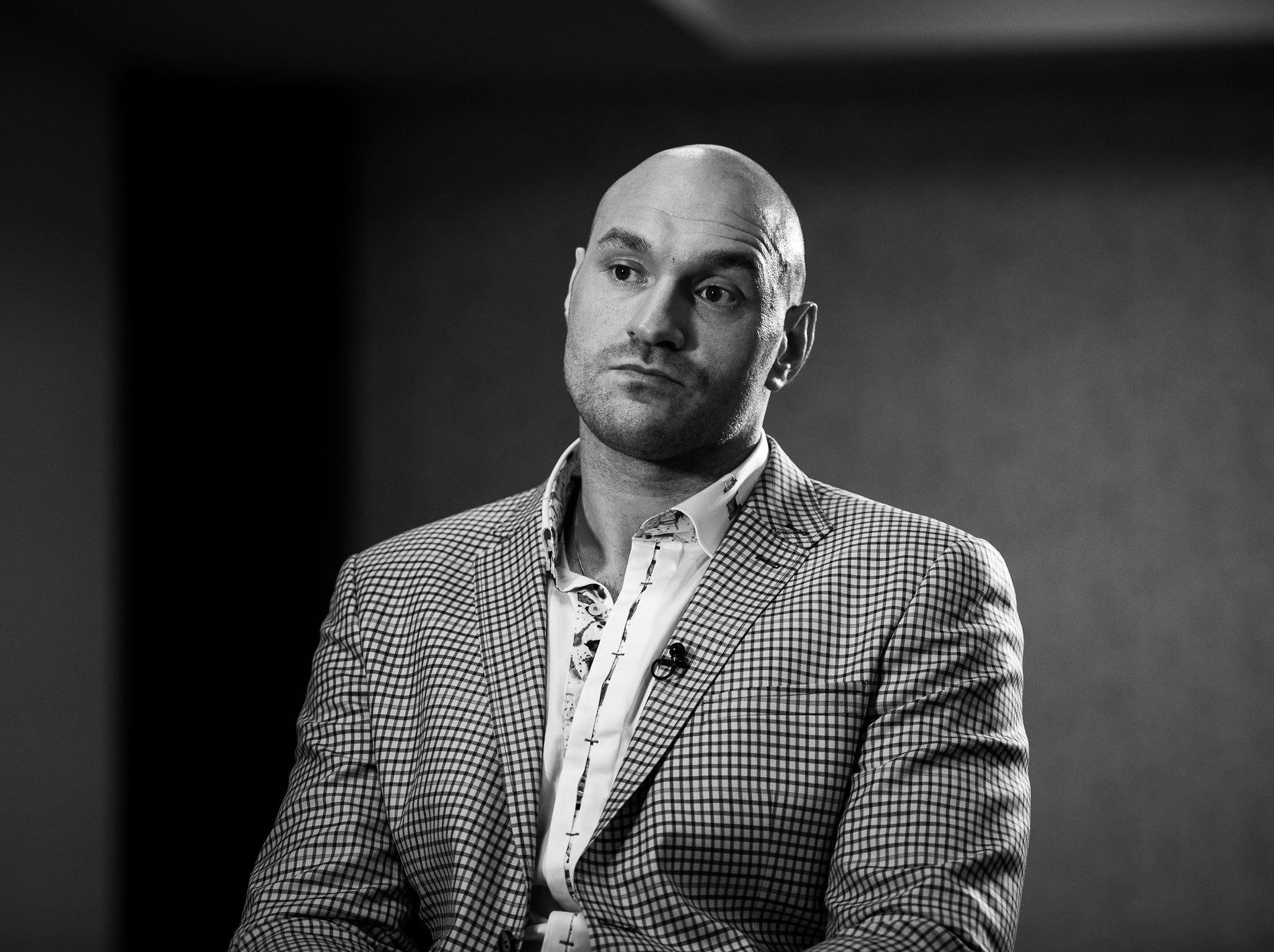
Your support helps us to tell the story
From reproductive rights to climate change to Big Tech, The Independent is on the ground when the story is developing. Whether it's investigating the financials of Elon Musk's pro-Trump PAC or producing our latest documentary, 'The A Word', which shines a light on the American women fighting for reproductive rights, we know how important it is to parse out the facts from the messaging.
At such a critical moment in US history, we need reporters on the ground. Your donation allows us to keep sending journalists to speak to both sides of the story.
The Independent is trusted by Americans across the entire political spectrum. And unlike many other quality news outlets, we choose not to lock Americans out of our reporting and analysis with paywalls. We believe quality journalism should be available to everyone, paid for by those who can afford it.
Your support makes all the difference.In the summer of 2016, Tyson Fury was driving his brand new Ferrari F12 at 190mph down an anonymous stretch of British motorway when he decided that he wanted to kill himself.
“I was driving on this strip of the highway where I am and, at the bottom of this five-mile strip, there is a massive bridge that crosses the motorway,” he has since recounted. “I got the car up to about 190mph and I was headed towards that bridge.
“I didn’t care what anybody was thinking. I didn’t care about hurting my family, friends, anybody. I didn’t care about nothing. I just wanted to die. So bad. I had given up on life.”
The thrilling realisation of Fury’s childhood dream — victory over lineal heavyweight world champion Wladimir Klitschko — was by now almost two years in the rear-view mirror. In the frenzied months since, Fury had struggled with his weight, injuries, mental health problems and substance abuse. His win in Düsseldorf had granted him the entire world as his personal audience, but after a series of inadmissible anti-gay and sexist rants, it no longer cared for what he had to say.
The bridge drew closer. Fury’s right foot remained glued to the accelerator. He was moments away from the oblivion he craved. And then, a voice.
“As I was heading towards that bridge in this Ferrari, which would have crushed like a Coke can if I had hit it, I heard a voice saying: ‘No, don’t do this Tyson. Think about your kids. Think about your family. Think about your little boys and girls growing up with no father, and everybody saying their Dad was a weak man, who left you and took the easy way out.’
“Just before I turned into the bridge, I pulled onto the motorway and I was shaking. I pulled over and I was all nervous and I did not know what to do. I was so afraid. And I thought to myself: I will never, ever try — or even think about — taking my own life again.”
Instead of driving into that bridge and ending his life, Fury drove home and restarted it. He saw a series of counsellors to begin his battle with clinical depression. He rolled back into the gym and shed over 130 pounds. He pointedly declared he would no longer explore the darkest recesses of his privately held opinions in public. And he prayed to God.
In the early hours of Sunday morning, back in the prize ring that both gave him life and also almost extinguished it, Fury will attempt to become the first man ever to defeat WBC heavyweight world champion Deontay Wilder, in a comeback to rival the likes of Sugar Ray Leonard and Muhammad Ali. Fury is the underdog, but so was Cassius Clay against Sonny Liston. George Foreman against Joe Frazier. Fury against Klitschko.
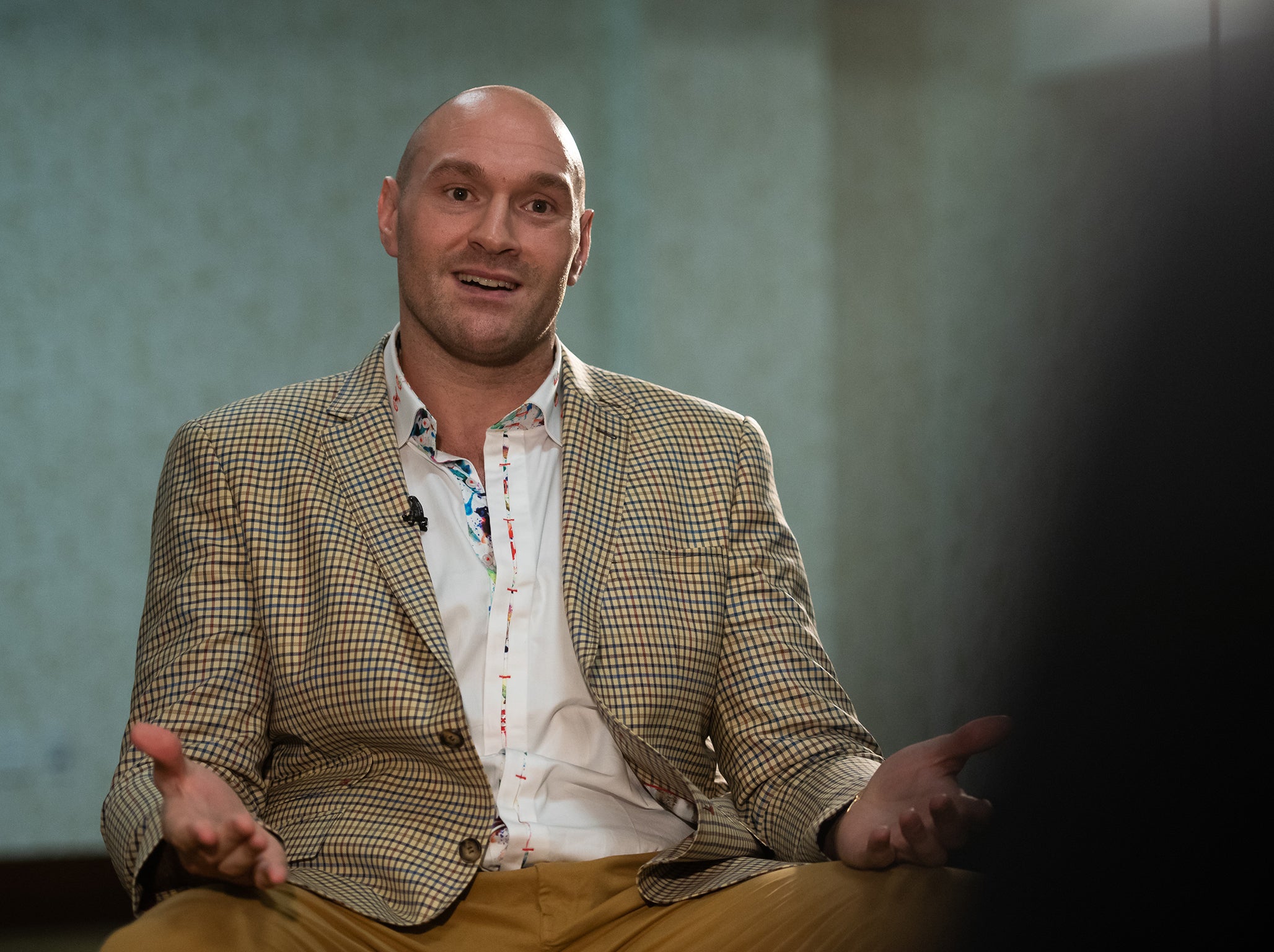
Sat in a characterless antechamber of The Westin Bonaventure Hotel & Suites in Downtown LA, an eclectic Fury holds court. “This is all unimportant to me, the boxing side is what it is,” he says, as he absent-mindedly plays with the strap of his expensive looking wristwatch. “It used to be my life. I lived and breathed for it. But there is more to life than a fight and I won’t be boxing for ever. I have found a new calling card now and it ain’t boxing.”
Reinvigorated, with a new perspective on life, Fury insists that he does not need boxing. That he is here not out of necessity, but because he wants to be. Only, as the old Sugar Ray adage goes, you may play golf and tennis — but you don’t play boxing. How serious is Fury’s feigned ambivalence? How far away is he from the next crash, metaphorical or otherwise? What chance does he have of beating Deontay Wilder, and why does it even matter?
***
Fury has been here before.
In November 2015, a few months prior to his aborted attempt to end his troubled life, Fury travelled deep behind enemy lines to challenge a champion that precious few believed would be beaten. The imperious Wladimir Klitschko, the WBA, IBF and WBO heavyweight king of the world, was unbeaten in 22 fights over 11 years and was making his 19th consecutive world title defence.
Klitschko regarded Fury with a mixture of bewilderment and contempt. “I will do some magic on Tyson Fury in Düsseldorf — I'll knock him out and make him disappear from boxing,” the Ukrainian sneered. “He has a brain the size of a squirrel’s.”
What followed was a performance as unbelievable as it was ugly. Klitschko’s crunching right-cross was a punch that proved lethal for 53 of his 64 victims, but an effervescent Fury refused to allow his rival to plant his feet and dispense it. Instead, Fury evasively dipped and dived, winning rounds with elegant single jabs, time and again tying up his rival as if reading him by Braille.
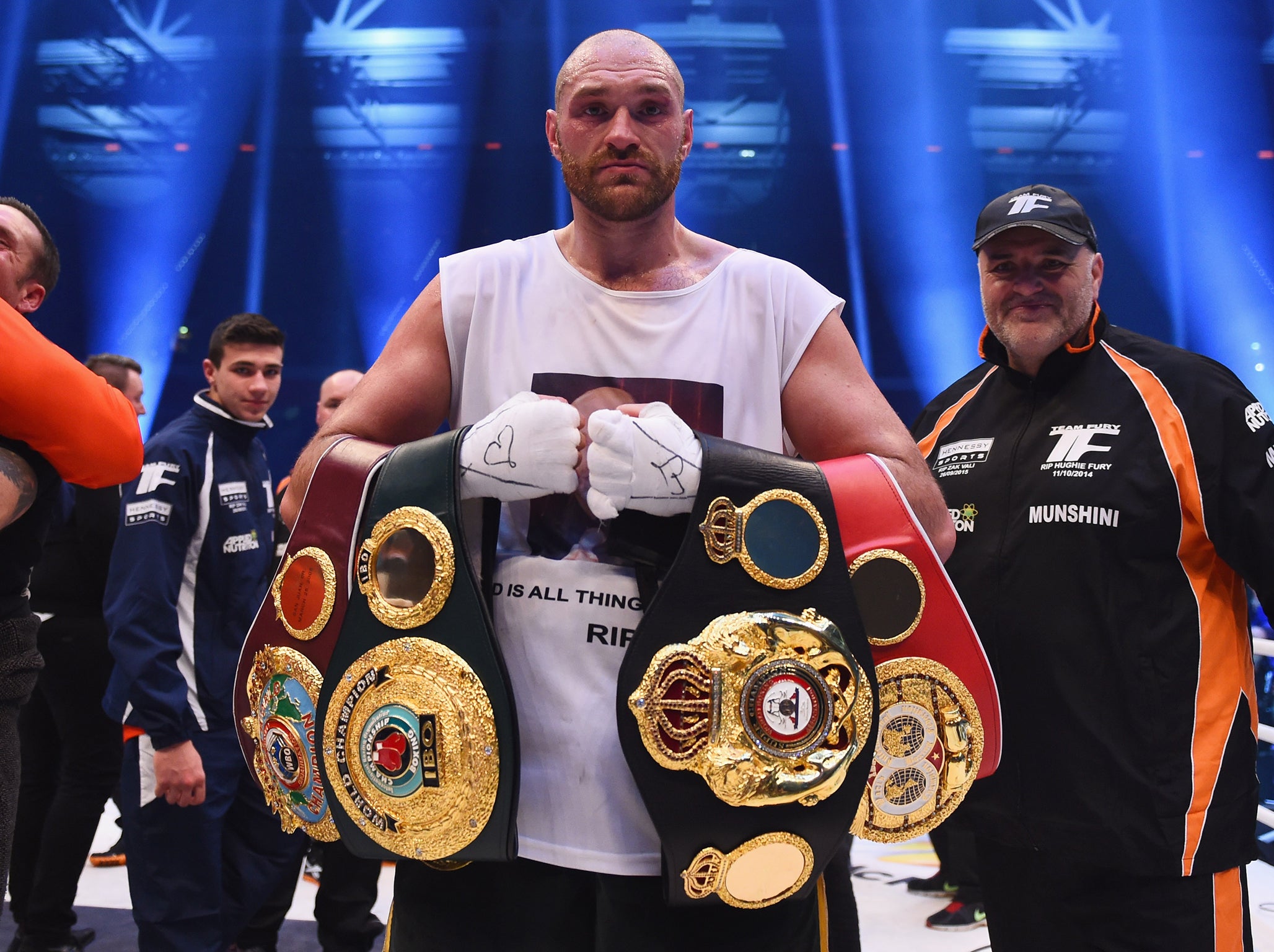
There has been no purer distillation of what makes Fury one of the finest fighters of his generation. Effervescent, evasive, elegant: these are not words often associated with the hard-nosed brutes of boxing’s blue-riband division. And while there were those who sneered at Fury’s unapologetically efficacious methodology, it was impossible to argue with the outcome.
Fury’s approach to stifling Klitschko was unique. With his arms dangling loosely by his sides like a gunslinger from the Old West, occasionally even clasped tauntingly behind his back, Fury smothered Klitschko’s aimless attacks, tangling him up at every opportunity, ramming in hard left hands on the break. It was an emphatic victory: Cesar Ramos and Ramon Cerdan both scored it 115-112, Raul Caiz Snr 116-111, all for Fury.
The entire occasion was streaked with the unique kind of surreal, cartoonish comedy that seemingly only Fury can engineer. The day began with his former agent, Asif Vali, earnestly lambasting the suspiciously soft ring “a health and safety hazard”. It was duly — and decisively — changed. It ended with a tear-stained Fury tunelessly bellowing Aerosmith’s “Don’t Want To Miss A Thing” to his wife, Paris, in the ring, as a bemused Lennox Lewis looked on.
Fury was now the unified WBA (Super), IBF, WBO, IBO, Ring magazine and lineal heavyweight champion of the world, and he had done things his way.
Victory marked the pinnacle of Fury’s career. There is an old video on YouTube that shows a young Fury sat on the edge of a boxing ring in a rather ill-fitting black hoody, his plentiful head of black hair gelled backwards. “Ability wise, I’m five times better than anybody in the world at the moment,” he smiles, his voice several octaves higher than it is now. “Anybody. The Klitschkos. Anyone. They’re as big as me — but they’re not as fast. They have no movement, they’re robots.”
The win — almost three years ago to the day — has inevitably loomed large over this week’s endless jamboree of news conferences, press opportunities and PR stunts. On Wednesday, upon being ushered to the mic by his perpetually agitated promoter Frank Warren, Fury was quick to remind people that “It’s my anniversary today so I want people to sing to me — and I’m only three days away from doing the exact same to the Bronze Bomber. Klitschko couldn’t catch me and neither will this bum.”
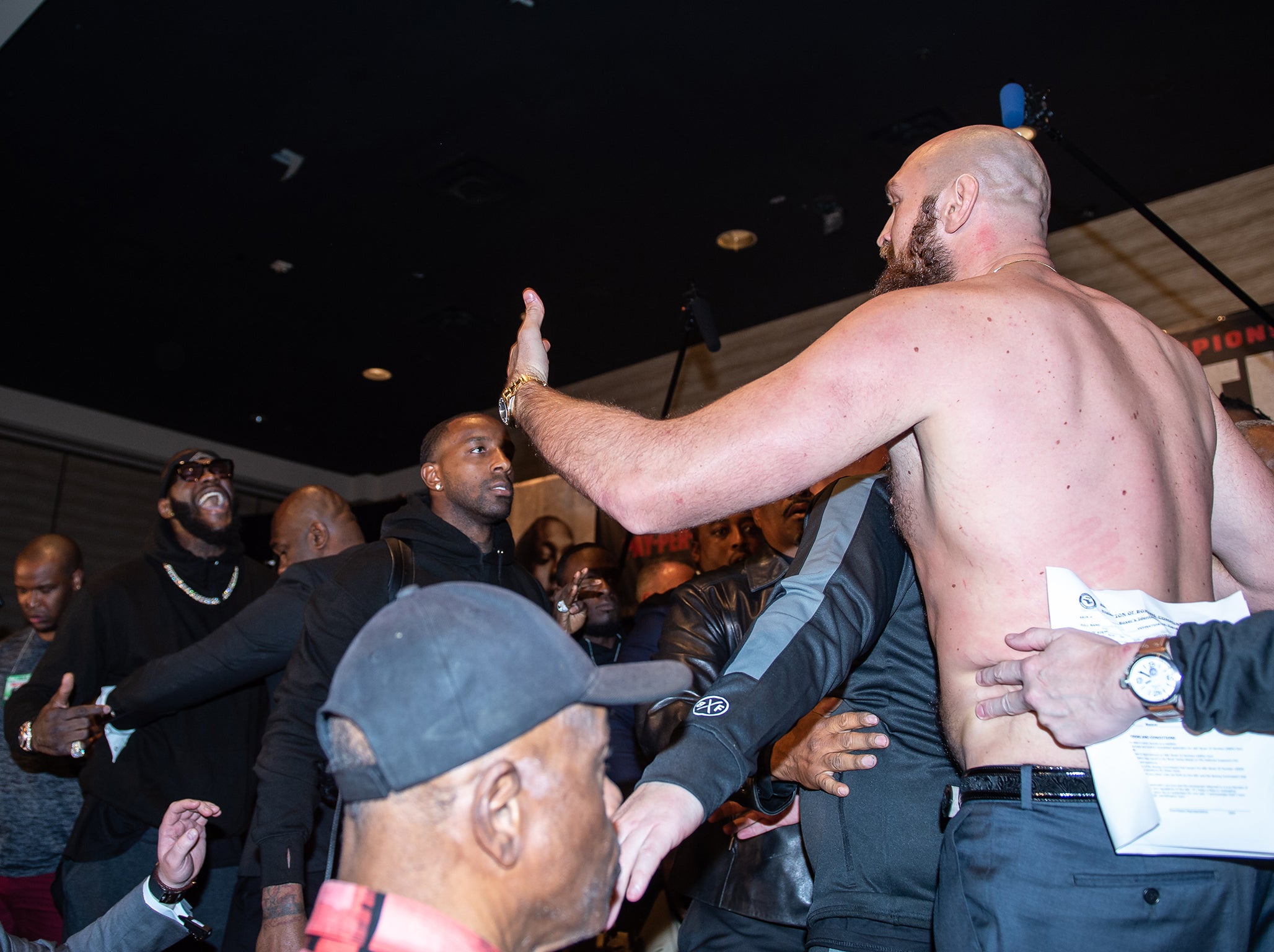
A couple of days later, sat down for an interview, the Mancunian was more introspective. “Tyson Fury achieved his dreams in Düsseldorf three years ago this week,” he said quietly. “He became a world heavyweight champion by beating a legendary fighter. That’s boxing. That’s dream stuff.”
Finally, Fury had the success, money and sporting recognition that he so ardently believed his god-given boxing ability entitled him. But it did not take long for the cracks to show. He had already scaled the summit of his destructive career, and now the only way was down.
***
In hindsight, the first troubling sign that Tyson Fury and fame were uneasy bedfellows came a few days before the defining night of his life in Düsseldorf, when an interview he gave to Oliver Holt, the Chief Sports Writer of the Mail of Sunday, was published.
In the article, Fury rattled through a series of controversial and nonsensical views with the same blurring speed that he punches his opponents with. “There are only three things that need to be accomplished before the Devil comes home,” Fury is quoted as saying. “One of them is homosexuality being legal in countries, one of them is abortion and the other is paedophilia”.
Fury’s response to the subsequent storm was to deny he had said anything. Then, after his victory over Klitschko, he threatened to have his brother, “big Shane”, attack Holt in an interview with YouTube channel iflTV. “He's 6ft 6in and 25 stone,” Fury leers into a camera. “He's going to break [Holt’s] jaw completely with one straight right hand. I won't do it as I'll get in trouble but the big fella there will annihilate him. Oliver, take a good look at him because that's the face you're going to see before you hit the deck.”
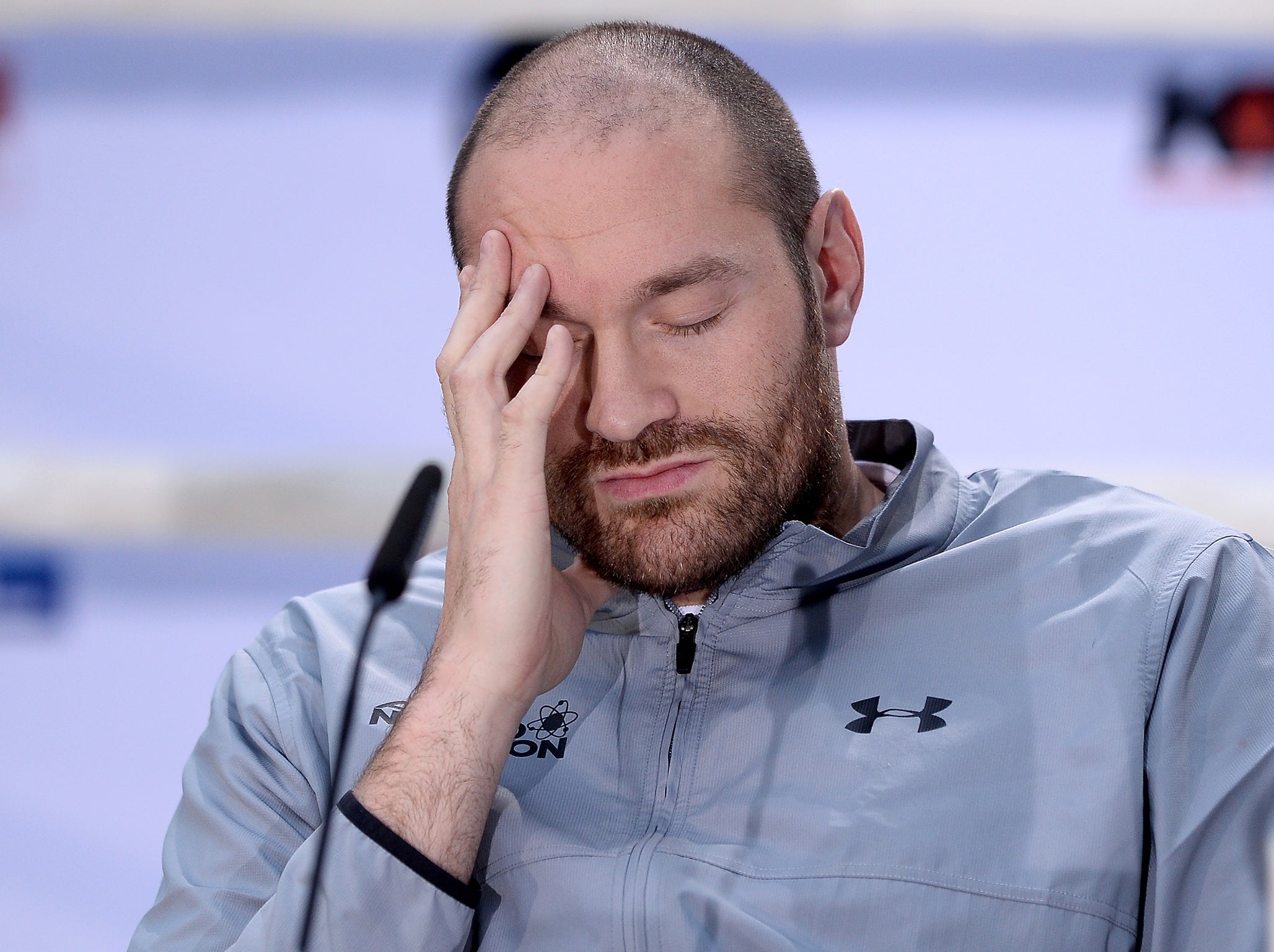
Further outrages were to follow. Fury was nominated for the BBC’s Sports Personality of the Year award for his win in Germany — only to then crassly remark that fellow nominee Jessica Ennis-Hill looked “quite fit when she’s got a dress on”. Soon, over 138k people had signed an online petition calling for his name to be struck from the shortlist, with Fury encouraging them all to “suck my balls”. He was booed when he arrived for the ceremony, eventually placing fourth.
Regardless of how distasteful both Fury’s committed supporters and the man himself find consideration of this troubled period of his life, his increasingly erratic actions go a long way in explaining his subsequent, painful downfall. Any consideration of his character which glosses over these outbursts is then worthless.
The planned rematch with Klitschko, scheduled to take place in his home city of Manchester, was announced on April 8 2016 after months of meticulous negotiation only to be postponed two months later when Fury sprained an ankle. The very same day, both Fury and his cousin, Hughie, were charged by UK Anti-Doping (UKAD) “with presence of a prohibited substance” from a sample sixteen months previous, a charge both men denied.
Another two months later and the fight was off for good, after Fury tested positive for cocaine. “I was 400 pounds, I was a fat pig and I wanted to die. I didn’t want to live,” he explains in Los Angeles, now half the size that he was. Over a destructive four-month period, he gorged on junk food, snorted cocaine and slammed sixteen pints daily. He announced his retirement and immediately retracted it, and spent his desultory days toying with the idea of suicide and trolling on Twitter, sharing mocked-up images of him as Scarface’s Tony Montana, sat behind a mountain of fine merchandise.
Fury had his British Boxing Board of Control license suspended in October 2016, which kick-started the long and painful process of the several sanctioning bodies stripping him of their world titles. But it was a little known androgen and anabolic steroid named Nandrolone rather than a regular intake of cocaine that would cause Fury his bitterest problems.
Warren’s plans for Fury to return to the ring in 2017 were scuppered by the UKAD charge still hanging over his head, a case the anti-doping body almost bankrupted itself fighting. Fury’s excuse for the suspiciously high levels of Nandrolone in his system was that he had mistakenly eaten an uncastrated wild boar — an explanation previously argued by two swimmers, David Meca, of Spain, and Igor Majcen, of Slovenia, who were subsequently banned.
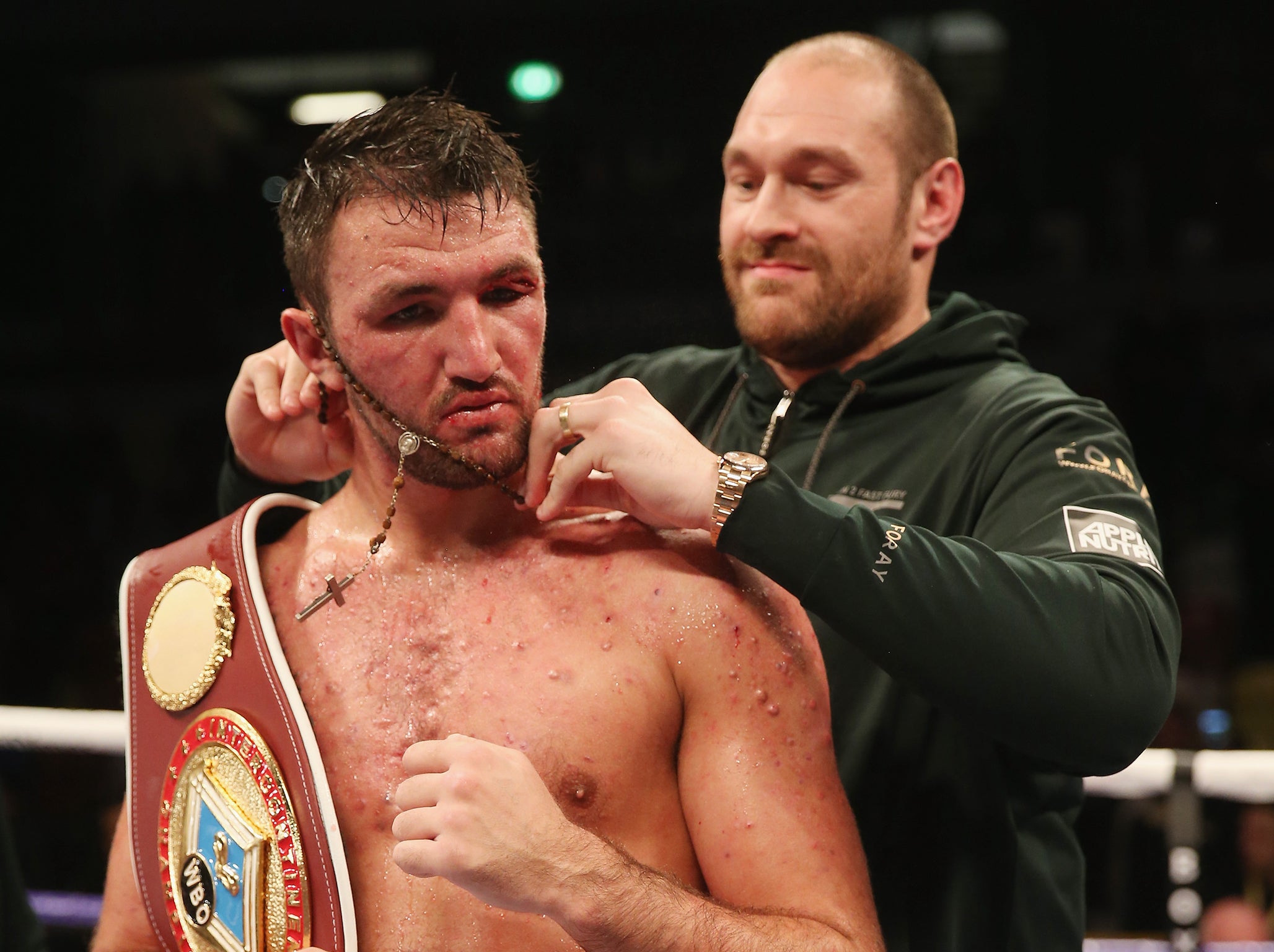
Finally, in February 2018, an explanation that was agreeable to all parties was reached. Fury accepted a backdated two-year doping ban and said he was glad to put his “nightmare” behind him. Hughie reached a similar agreement. And UKAD escaped insolvency.
After 28 months of chaos, Fury was free to resume his boxing career.
***
First things first: why has he shaved? “The legend is back,” Fury smiles, as he leans back into his seat and rubs his newly smooth face. The shaggy auburn beard that he has been sporting throughout his sickeningly intense fight camp up in Big Bear Lake is finally gone. “I think I look 15 years younger and the wife likes me better without it,” he adds. “It took six months to grow and two seconds to get it off.”
This week has seen the return of the old Fury. The wisecracking wind-up merchant as comfortable needling journalists as he is merrily describing, in exacting detail, just how he plans to punch his opponent’s face in on Saturday night. Considering the extraordinary demands on his time — as well as the absence of his father, John, denied an American visa after serving prison time for gouging a man’s eyeball out in 2011— he has been exceptionally good-natured.
But you do not have to dig especially deep to realise that Fury is also a man burdened with a litany of demons to wear with the crown that comes with the lineal heavyweight championship of the world. Fury is so comprehensively nonplussed by the challenge Wilder presents him because, in his mind, he has fought far greater opponents and won. “I have been so dark that everything was pitch black,” he says, with the kind of searing honesty that demands an audience.
“Before, every single day for me was a grey day. And some people might not know what I am talking about when I say that, but every day shouldn’t be a grey day. Because life is a blessing. And now I know that every day is a rose-coloured, sunshine day. Which I appreciate. I appreciate every second, every hour, every day, because life is so very short.”
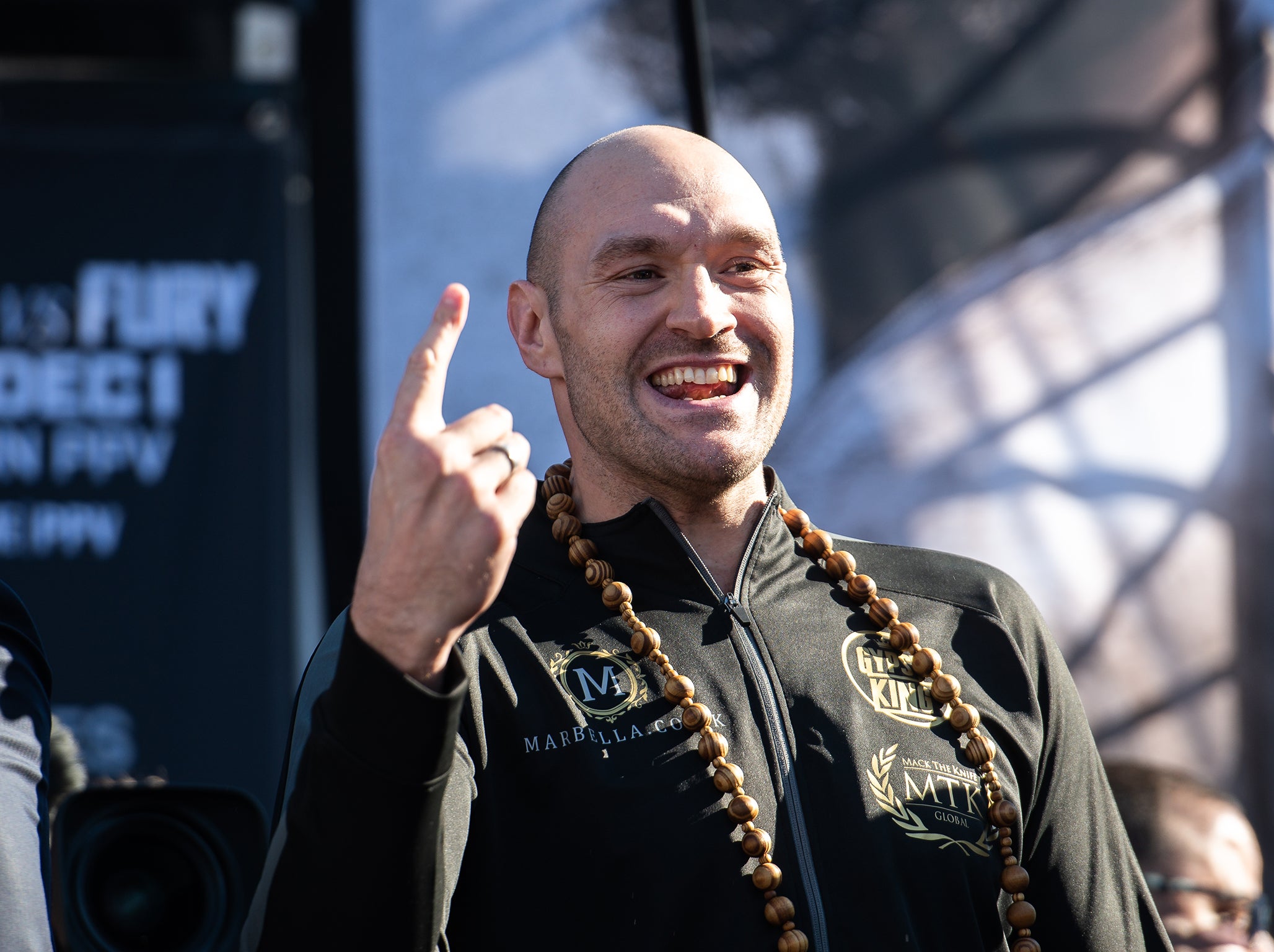
As Fury tumbled into depression during those traumatic grey days, his family could not understand what they were dealing with. “He was drinking and partying for the first few months and I understood that,” his wife, Paris, said this week. “But then it turned heavier. It got hard and it was a terrible time seeing him in that kind of torment. And there were stages when I thought that I couldn’t take this any longer. We just had to try our best, but there was no helping him.”
Fury’s younger brother, Shane, admits that he still struggles to process what Tyson has been through. So instead they decide not to talk about it, the great big grey elephant in the room. “He was our role model and he was in a worse way than we thought, because we didn’t know what was going on. And he didn't get any sympathy from us. Instead we’d say he was a fool, that he was seeking attention and a clown,” Shane told BT. “And I wouldn’t give him no sympathy now. That’s just the way we are.”
It was a long road back for Fury, from that fateful stretch of motorway to his recent sanguinity. And after emerging from his drink and drug induced stupor, he was not too proud to seek help. “I got professional help,” he says. “I got the best professional help that money could buy, better help than most people receive, and I saw lots of people. And after that, I got onto my knees and I begged to God for help. So I have lots of different people to thank. I didn’t do this on my own, this was never an alone thing.”
The 30-year-old also carries with him a newfound sense of perspective, which materialises itself as a determination to tell anybody who will listen that his existence no longer revolves solely around the sport of boxing. He professes to possessing a recalibrated set of hopes and desires, along with a “new calling card”, which he believes will help prevent his life from sliding into destructive chaos once again.
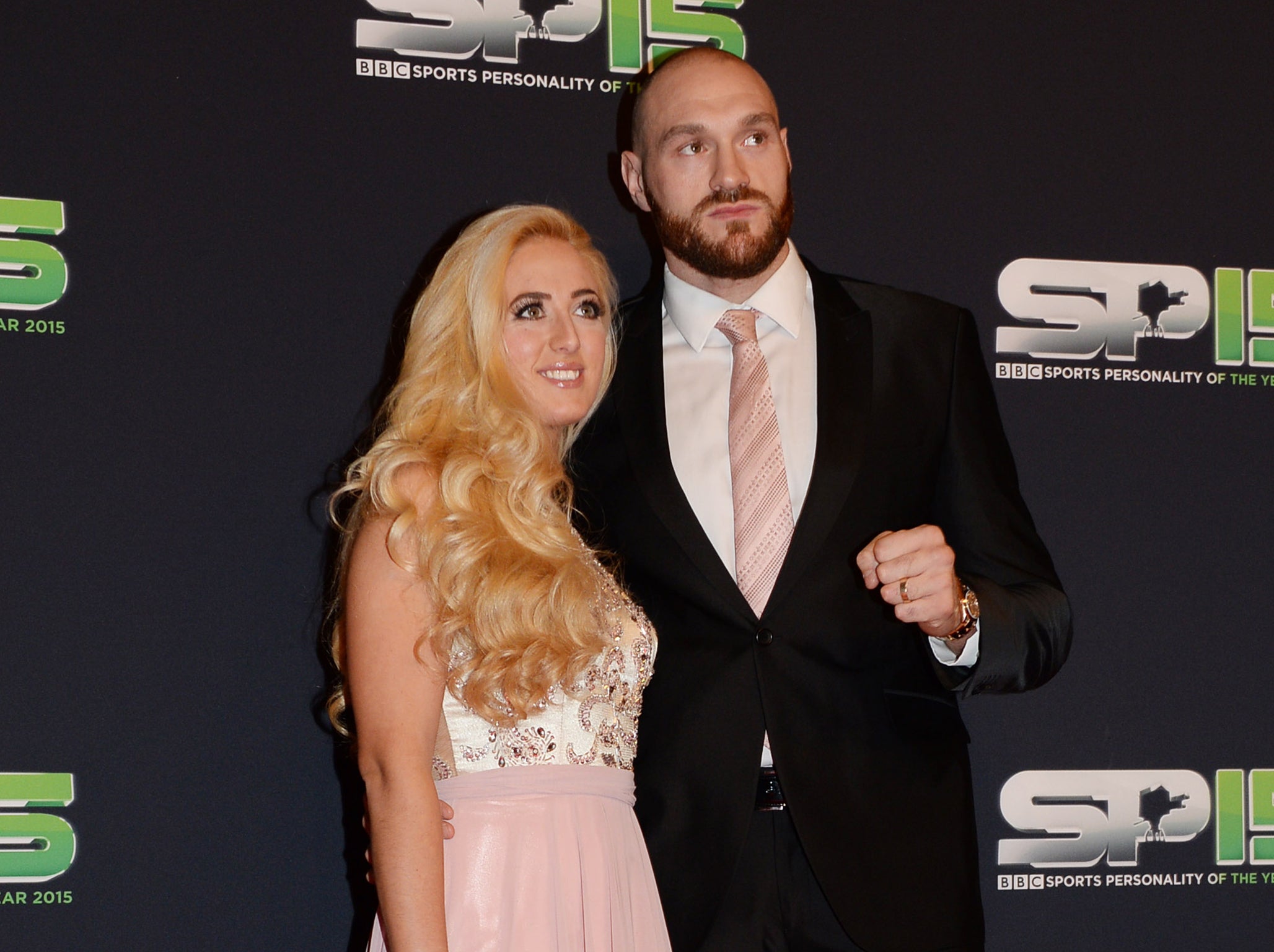
“Now I am here to inspire and give other people hope,” he says with a large, slow smile. A proper smile. Entirely different from the smirk he usually wears when joking with journalists or antagonising whoever has displeased him. “If I can turn my life around from what I have been through, and still come back, then anybody can achieve anything they want to from life. I mean that.
“I ain’t just getting into that ring to make myself or my family proud. I’m going in there because people need me. I suffered for years from depression and anxiety and I didn’t understand what it was, because I had never been educated about it. And if I was suffering then there are people going through the same things as me. I want to help change that.”
The interview ends. A smartly dressed member of Fury’s team appears and immediately shepherds him away to the centre of the room, where a BBC cameraman is adjusting his spotlight. Fury plonks himself down in his new seat. “You’re really squeezing every last drop out of me this afternoon,” he says to his shoes. Somebody hands him a water bottle. “If I take on anymore water there’s going to be an accident all over the floor.”
The BBC crew have finished setting up. Fury is mic’d. Yet another interview begins. Why has he shaved his beard off? He takes a deep breath. “New look. New day. New dawn. New hour. New day. New me.”
***
It was another great British champion, one almost as beguilingly eccentric as Fury, who perhaps best surmised this most brutal of sports. “Boxing is a mugs game,” Chris Eubank once commented on the cruel realities of the profession that made him. “99.99% of boxers get used and abused and disfigured.”
By Fury’s standards, the build-up to his contest with Wilder has been placid. There is no shortage of respect between the two. They are united in shared disdain for the unified WBA, IBF and WBO heavyweight champion, Anthony Joshua. And there was even a minor social media storm when the pair were pictured sat on a settee together sharing a joke, shortly before the latest histrionic leg of their press tour.
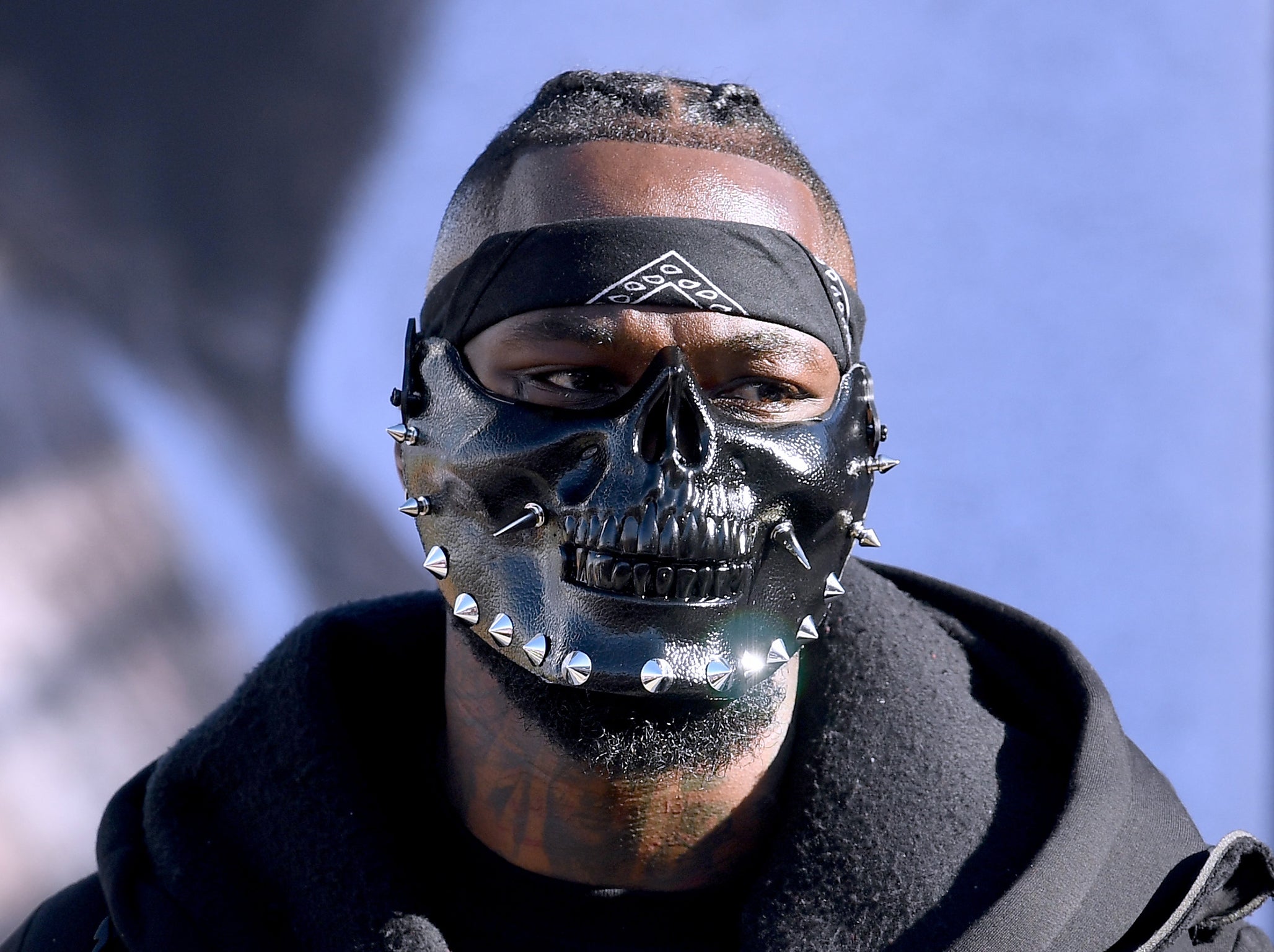
On Wednesday, something changed. An innocuous comment Fury made about his Gypsy heritage was lost in translation, enraging Wilder, who marched forward for the concluding face-off with an indignant assertion, whereupon he preceded to decorate his rival’s face with warm spittle. To escape the salivic onslaught Fury jerked his head sidewards, brushing into Wilder’s outstretched palm. The pair exchanged angry shoves before they were dragged away.
Perhaps it was one final ploy to squeeze some extra pay-per-view pennies out of a disinterested American audience. But perhaps not. Wilder appeared genuinely incensed, with one member of his team later confiding to a small group of British journalists that his anger was real. After all, this is a man who was previously condemned for benightedly remarking “I want a body on my record.”
Like Fury, Wilder has something to prove. He is undefeated in 40 fights and has knocked out every man foolish enough to climb into a ring with him, the best and most exciting heavyweight champion America has seen since Evander Holyfield. And yet he has long struggled to be taken seriously, a peripheral figure in the international sporting landscape despite his accomplishments.
He is also the favourite to win on Saturday night. By knockout. For all of Fury’s bluster and bravado — as well as his assertion that Wilder is a ‘one-dimension dosser’, repeated so often it has adopted the resonance of a mantra — he is in a fight. And if he is no longer as committed to this sport as he once was, as he stubbornly maintains, how can he be expected to win?
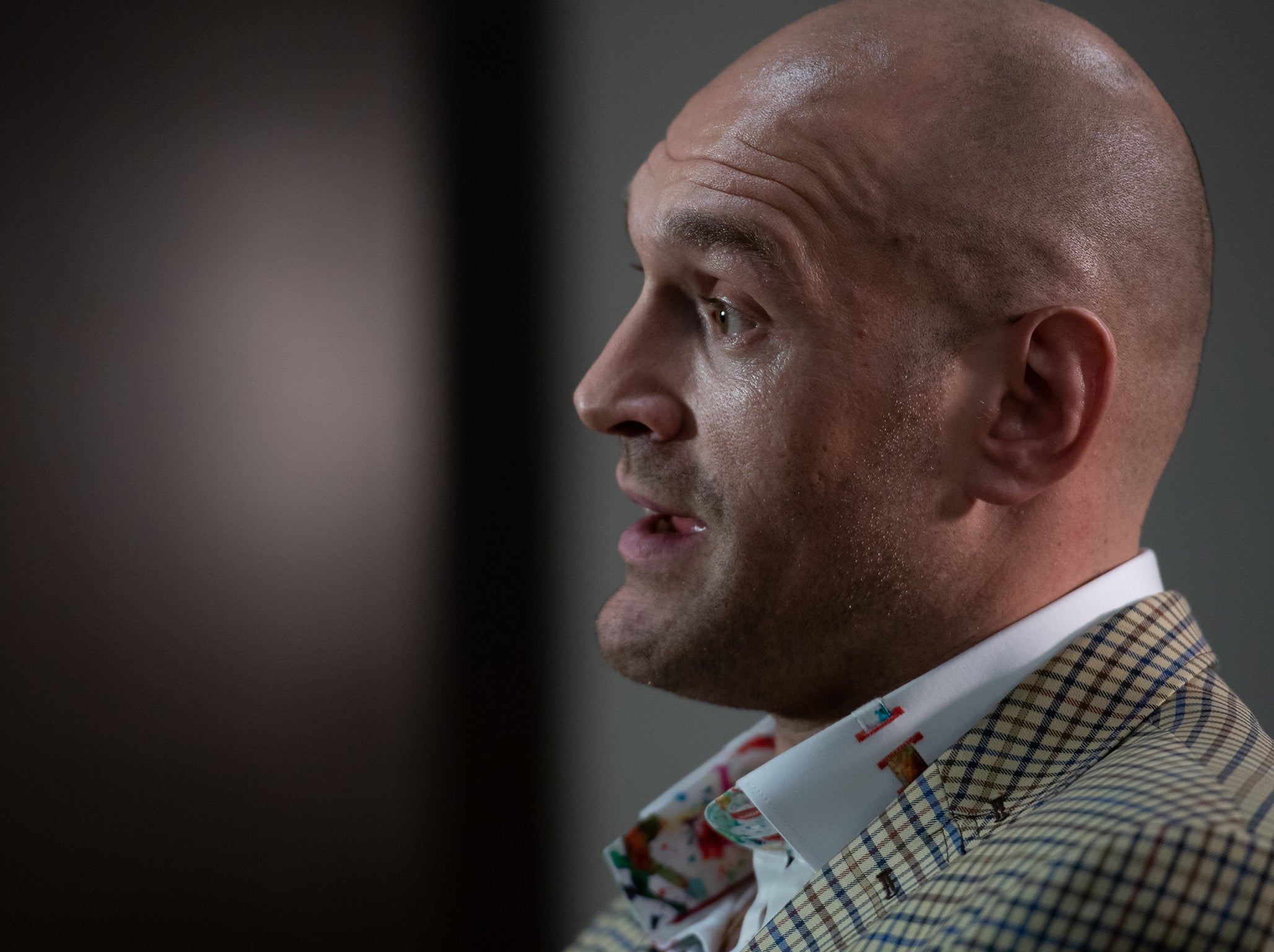
Fury maintains that it does not matter. “I'm a winner. I've never lost. But what will it mean? To be brutally honest, not a great deal,” he sighed in a television interview earlier this week. At the explosive final news conference, however, he was back to eulogising just how significant victory would be. “I am going to punch his face right through,” he said, simply. “People keep saying Wilder by knockout or Fury by points. But I am telling you I am going to knock out this man.”
In boxing, where fighters are frequently interviewed at length and a YouTube snippet of Fury trimming his nostril hair would likely command a few thousand views, quotes come cheap. Yet it is possible Fury’s attitude to this fight only mirrors his outlook on life: conflicted, contradictory, complicated.
And you sense that, somewhere along this confused hinterland, lies the real Fury. After his disastrous first flirtation with fame he now has the opportunity to make amends. His long road to Los Angeles began with a terminated attempt to destroy both the trappings of his newfound fame and himself: it ends with a second shot at superstardom, after a second shot at life itself.
BT Sport Box Office will exclusively show Wilder v Fury on December 1st, available to buy for just £19.95, find out more at www.bt.com/sportboxoffice.
In the UK, Samaritans can be contacted on 116 123 or email jo@samaritans.org or jo.samaritans.ie in the Republic of Ireland. In the US the National Suicide Prevention Lifeline is 1-800-273-8255. In Australia the crisis support service Lifeline is 13 11 14. Other international suicide helplines can be found at www.befrienders.org.
Join our commenting forum
Join thought-provoking conversations, follow other Independent readers and see their replies
Comments